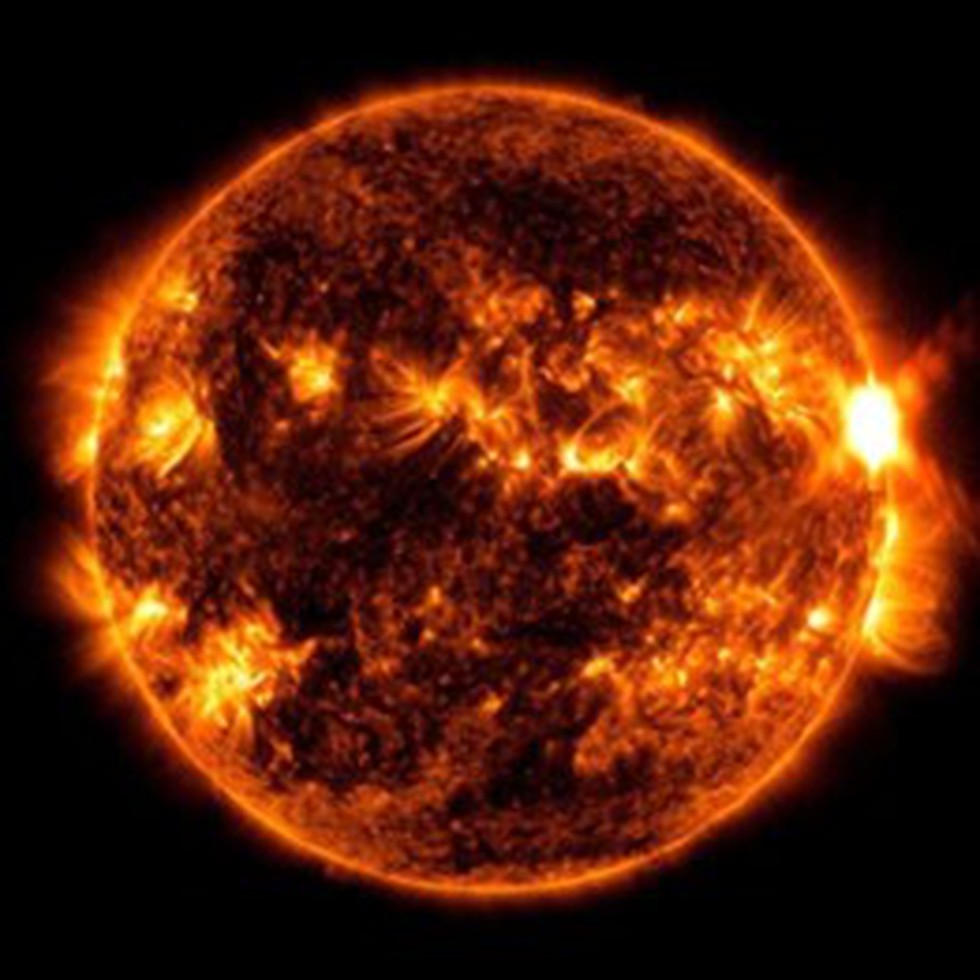About Solar Flare:
- A solar flare is an intense burst of radiation coming from the release of magnetic energy associated with sunspots.
- Flares are our solar system’s largest explosive events.
- They are seen as bright areas on the sun, and they can last from minutes to hours.
- In a matter of just a few minutes, they heat the material to many millions of degrees and produce a burst of radiation across the electromagnetic spectrum, including from radio waves to x-rays and gamma rays.
- Although solar flares can be visible in white light, they are often more readily noticed via their bright X-ray and ultraviolet emissions.
- Effect on Earth:
- The intense radiation emitted during a solar flare can affect satellite communications, disrupt radio signals, and even pose a risk to astronauts in space.
- Additionally, the increased solar radiation can lead to geomagnetic storms, which may impact power grids and cause auroras (northern and southern lights) at lower latitudes.
What is a Geomagnetic Storm?
- A geomagnetic storm is a major disturbance of Earth's magnetosphere.
- These storms result from variations in the solar wind that produces significant changes in the currents, plasmas, and fields in Earth’s magnetosphere.
- The solar wind conditions that are effective for creating geomagnetic storms are sustained (for several hours) periods of the high-speed solar wind and a southward-directed solar wind magnetic field (opposite the direction of Earth’s field) at the dayside of the magnetosphere.
- The largest such storms are associated with solar coronal mass ejections (CMEs), where a billion tons or so of plasma from the sun, with its embedded magnetic field, arrives at Earth.
Key Facts about Coronal Mass Ejections (CMEs):
- Solar flares are different to 'coronal mass ejections' (CMEs), which were once thought to be initiated by solar flares.
- CMEs are large expulsions of plasma and magnetic field from the Sun’s corona that propagates outward into interplanetary space.
- Although some are accompanied by flares, it is now known that most CMEs are not associated with flares.
- The blast of a CME carries about a billion tons of material out from the Sun at very high speeds of hundreds of kilometers per second.
